Do you really need to hire a consultant, or can coaching be a cheaper alternative?
Don’t get me wrong, I have now been a freelance consultant for over 14 years and will quite happily wax lyrical for hours about the benefits and value for money an independent and external consultant can bring to your organisation. Consultants definitely have their place, but it is quite possible that you already have access to an untapped source of knowledge, experience and even a sprinkling of enthusiasm within your own organisation, that just needs the right catalyst to unleash it! And, in the current climate that might be exactly what your organisation needs right now.
In the last 12 months, Covid-19 has brought about massive disruption to most businesses. Many sectors have had to close their doors and furlough large numbers of their staff. Even as we seem to be heading back towards some semblance of normality for many businesses, the pandemic will forever change the way they operate. There are clearly lessons to be learnt, and businesses will need to adapt as the world returns to a new normal. This will most likely require expertise and support, but is it right to bring in high-cost external support when you may already have a well of your own in-house talent at your disposal?
At CMI our experience shows that our success as consultants is often reliant on the knowledge and contribution of the Client’s employees. They are the subject matter experts of your business, but rarely have the dedicated capacity or focus to manage a project alongside their day job. However, with staff on furlough, there is an opportunity to utilise those resources to your advantage by bringing them back to help. But before you do, recognise that there are clear risks to consider when using staff that are inexperienced in project delivery, to deliver key projects for your business.
Best of both worlds
A solution to this is to bring in an experienced consultant on a part-time basis to work alongside your staff. Using a consultant to coach and guide your staff to deliver the project rather than taking a lead in the delivery could mitigate those risks and be a beneficial way forward. Coaching potentially offers the best of both worlds. You still have access to a consultant’s knowledge and expertise, but you are reducing their time, and cost, by utilising the spare capacity of your own staff. It also offers a development opportunity for your staff through knowledge transfer and upskilling in project delivery.
As a recent example of where we have utilised this arrangement to good effect, CMI were engaged, through Ameo Group, to work on Buckinghamshire Council’s unitary programme. The assignment was split into two elements, one delivery focussed, and the other acting as coach and mentor to an in-house programme lead, James. We spent around half a day a week working with James to develop his skills, challenge his thinking and to provide a sounding board throughout the programme for any queries or concerns he had. This arrangement worked successfully and potentially saved the client four and half day’s consultancy time per week had they instead opted to bring in a full-time programme manager.
Don’t take my word for it, here’s what James had to say….
“Darren offered excellent counsel and guidance. He was a great sounding board and with his considerable experience was able to shape and improve our change programme bringing in new tools and approaches. Darren provided me with practical and actionable advice and helped me step back from business issues and talk through courses of action. If you have a complex, demanding project and need someone who will address issues, solve problems and build positive relationships Darren is your person.”
If you are interested in discussing how this might work for you, please give us a call.

